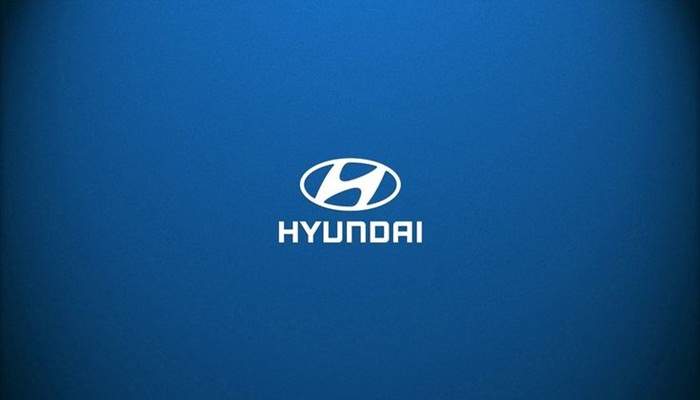Executive pay at Singapore’s largest corporations rose sharply in 2024, reflecting strong earnings in banking, post-pandemic recoveries in aviation, and equity-driven growth in technology. To understand these trends, we reviewed the latest annual reports of leading companies spanning banking, technology, telecommunications, aviation, agribusiness, and engineering to examine what their top executives earned.
The disclosures reveal a wide range in pay structures. While DBS’s Piyush Gupta retained his spot as the highest-paid CEO at SGD 17.58 million, Flex’s Revathi Advaithi saw her salary remain flat at USD 1.325 million, highlighting a stark contrast in regional and sectoral pay structures.
Banking leaders like UOB’s Wee Ee Cheong (SGD 15.05 million) and OCBC’s Helen Wong (USD 12.8 million) command some of the heftiest cash payouts, buoyed by record profits and strong return-on-equity performance.
In contrast, tech leaders such as SEA’s Forrest Li and Grab’s Anthony Tan lean on equity-heavy incentive plans, with massive stock options forming the bulk of their long-term wealth rather than annual cash pay.
The aviation and engineering sectors strike a middle ground: Singapore Airlines’ Goh Choon Phong received SGD 7.01 million in 2024, while ST Engineering’s Vincent Chong Sy Feng earned SGD 4.66 million, both balancing cash and deferred share awards as the industries recover from pandemic headwinds and pivot toward future growth.
Agribusiness giant Wilmar International presents a unique case: CEO Kuok Khoon Hong holds a 14.33% ownership stake in the company, making his wealth closely tied to Wilmar’s long-term performance rather than his disclosed annual pay.
Here’s a breakdown of what each top leader earns, and how their pay structures reflect their industries’ priorities and performance:DBS’ CEO Piyush Gupta earns SGD 17.58 million
Piyush Gupta topped the 2024 charts with SGD 17.58 million in total remuneration, cementing his place as Singapore’s highest-paid bank chief. The payout was driven by DBS’s record profit of SGD 11.4 billion and an 18% return on equity. Deferred awards link Gupta’s incentives to shareholder value and regulatory best practices.
Breakdown of pay: SGD 1.5 million in base salary, SGD 6.645 million in cash bonuses, SGD 9.355 million in deferred stock awards, and SGD 80,533 in benefits.
UOB’s CEO, Wee Ee Cheong, receives SGD 15.05 million
Wee Ee Cheong, CEO of UOB, earned SGD 15.05 million in 2024, continuing UOB’s tradition of high cash-based compensation. Unlike DBS and OCBC, UOB places minimal emphasis on deferred equity, rewarding short-term performance gains from lending and wealth management.
Breakdown of pay: SGD 1.44 million in salary, SGD 13.56 million in bonuses, and SGD 46,944 in benefits.
Singapore Airlines’ CEO Goh Choon Phong earns SGD 7.01 million
Singapore Airlines’ CEO Goh Choon Phong earned SGD 7.01 million in 2024, reflecting the airline’s steady recovery post-pandemic. By blending cash bonuses with deferred equity, Singapore Airlines aligns leadership rewards with longer-term profitability amid volatile fuel prices and travel demand.
Breakdown of pay: SGD 1.456 million in salary, SGD 3.12 million in bonuses, SGD 2.292 million in share awards, and SGD 145,495 in benefits.
Singtel’s CEO, Yuen Kuan Moon, earns SGD 3.28 million plus share awards
Yuen Kuan Moon at Singtel reported SGD 3.28 million in cash and benefits in 2024, with significant multi-year equity grants. Singtel’s executive remuneration structure reflects its strategic pivot toward ICT and data centre businesses, incentivising multi-year transformation goals.
Equity component: Restricted Share Awards (RSA) and Performance Share Awards (PSA) form a substantial part of his package, including a one-off 4.18 million-share grant vesting in 2026.
ST Engineering’s CEO Vincent Chong Sy Feng earns SGD 4.66 million
Vincent Chong Sy Feng of ST Engineering earned SGD 4.66 million in cash remuneration in 2024, supplemented by restricted and performance shares vesting over three to six years. This hybrid model aligns with ST Engineering’s defence and aerospace contracts, which require retention and performance over long cycles.
Compensation breakdown: SGD 1.217 million in salary, SGD 3.306 million in variable incentives, and SGD 138,642 in benefits.
Grab’s CEO, Anthony Tan, is part of the USD 8 million executive pool
Grab’s 2024 disclosure listed USD 8 million in aggregate cash compensation for its directors and executive officers, a pool that includes co-founder and CEO Anthony Tan. Unlike its banking peers, Grab does not break out individual CEO pay, underscoring a broader trend among tech companies to focus on group-level disclosures rather than individual figures.
Compensation framework: Leans heavily on equity-linked incentives rather than high base salaries or large cash bonuses. Executives participate in the company’s Share Incentive Plans, which grant restricted stock units and options tied to performance milestones and long-term share price appreciation.
SEA’s CEO Forrest Li holds 5.5 million share options
Forrest Li of SEA Ltd holds 5.5 million Class A share options granted in 2019 at USD 15, expiring in 2029. Li’s wealth is tied to SEA’s long-term valuation growth, driven by Shopee (e-commerce), Garena (gaming), and SeaMoney (fintech).
Valuation context: SEA’s share-based compensation expenses exceeded USD 700 million annually from 2022 to 2024, reflecting the tech firm’s equity-first reward structure.
Wilmar’s CEO Kuok Khoon Hong combines pay with 14.33% ownership stake
Wilmar’s CEO, Kuok Khoon Hong, derives the majority of his wealth from ownership rather than disclosed annual salary.
Family remuneration and ownership: Kuok’s total holding of 894.6 million shares (14.33% of Wilmar) cements his position as one of Singapore’s most influential owner-CEOs. In 2024, his sister earned S$50,000–S$150,000 (Finance Department) and his son S$150,000–S$250,000 (Business Development).
Flex’s CEO, Revathi Advaithi, earns USD 1.325 million base salary
Revathi Advaithi, CEO of Flex Ltd, reported an annualised base salary of USD 1.325 million for both FY2024 and FY2025, a figure that has remained unchanged year-over-year, bucking the trend of rising executive pay across many Singapore-listed peers.
Remuneration philosophy: Flex’s disclosures emphasise the company’s US-style remuneration philosophy, where the base salary forms only a modest part of total compensation, with the bulk tied to equity awards and performance-linked incentives.
The future: CEO’s salary is likely to become even more performance-linked
Looking ahead, executive pay in Singapore is likely to become even more performance-linked as global investors and regulators push for accountability and alignment with shareholder outcomes. Sustainability metrics and digital transformation goals are also expected to play a larger role in shaping incentive plans, particularly in industries like banking and telecom that face mounting ESG and tech disruption pressures.
For now, the contrasts remain striking: SGD 17.58 million cash-heavy payout at DBS on one end, and long-horizon equity bets at SEA and Grab on the other. The next few years will test whether these pay structures successfully balance immediate shareholder rewards with the long-term resilience demanded in an increasingly competitive, tech-driven regional economy.




















